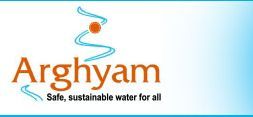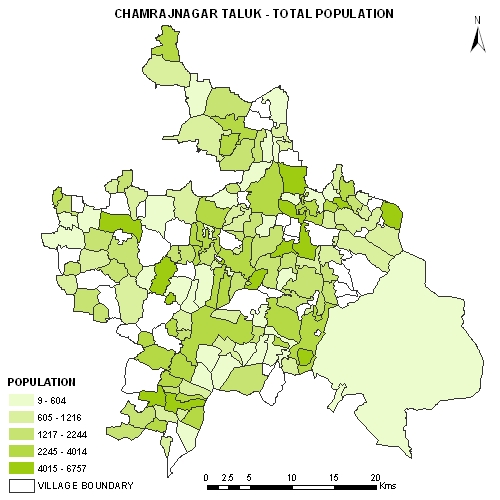Karnataka
National-level engineers' training on Decentralized Wastewater Treatment systems (DEWATS), CDD, Bangalore
Posted on 16 Jul, 2009 10:34 PM![]()
The Consortium for DEWATS Dissemination (CDD) Society is a not-for-profit organisation working in the field of decentralised basic need services across India. Decentralised solutions for wastewater treatment, water and energy supply, solid waste management and urban sanitation planning are successfully promoted for the past ten years.
CDD aims to create a knowledge base for up-scaling decentralised basic need services through its capacity building approach. CDD Society, in partnership with Bremen Overseas Research and Development Association (BORDA), Germany and Rajiv Gandhi Rural Housing Corporation Limited (RGRHCL) is organising a 6 days training programme on decentralised wastewater treatment systems (DEWATS) from 17th August to 22nd August, 2009 in Bangalore. The training aims to impart skills required for planning, implementing and managing DEWATS to the participants.
A survey for household water and sanitation (ASHWAS)
Posted on 15 Jul, 2009 11:27 PM The Water Portal had previously covered ASHWAS, an ambitious water and sanitation survey in Karnataka conducted by Arghyam and partner organisations.
The Water Portal had previously covered ASHWAS, an ambitious water and sanitation survey in Karnataka conducted by Arghyam and partner organisations.
Workshop on how to save the lakes of Bangalore, Bangalore Environment Trust, Bangalore
Posted on 01 Jul, 2009 02:34 AM(Jointly organised by Bangalore Environment Trust and ARGHYAM) On 4 July 2009 at 1430h at the RAMAN RESEARCH INSTITUTE 
 Accor
Accor
"Exploring Environmental Education beyond the Classroom" - A workshop for teachers and educators, ESG, 9-11 July 2009, Bangalore
Posted on 05 Jun, 2009 01:55 AMImage and Content Courtesy:ESG India  This workshop for teachers organized at the ESG Office, from 9th, to11th July 2009will provide the opportunity to find new skills and share what has worked and what needs to change. This is a workshop for enthusiastic teachers, and coordinators and facilitators of education programmes with a passion for educating and motivating kids. It aims to help young professionals develop their skills and knowledge so they can inspire children and others more effectively.
This workshop for teachers organized at the ESG Office, from 9th, to11th July 2009will provide the opportunity to find new skills and share what has worked and what needs to change. This is a workshop for enthusiastic teachers, and coordinators and facilitators of education programmes with a passion for educating and motivating kids. It aims to help young professionals develop their skills and knowledge so they can inspire children and others more effectively.
The purpose of the workshop is to demonstrate to the teachers and educators how the outdoors can be utilized to introduce, strengthen, and emphasize concepts of the environmental education curriculum. Through classroom sessions, games and field studies, we will explore the curriculum, teaching techniques, and classroom activities that can help kids learn about the wonders of nature and their environment. During the workshop we will help identify some simple methods and techniques for teaching environmental education in the outdoors and the workshop will also familiarize the participants with some of the environmental issues of Bengaluru.
Exploring options for sustainable water management in the Malaprabha river basin - Proceeding of the final stakeholder workshop held in November 2008 in Belgaum, Karnataka
Posted on 03 Jun, 2009 03:17 PMThis document deals with the proceeding of the final stakeholder workshop titled “Exploring options for sustainable water management in the Malaprabha River Basin”. The one day workshop was jointly organised by the Centre for Interdisciplinary Studies in Environment and Development (CISED) and the Norwegian Institute of Water Research (NIVA) at Belgaum on 5th November 2008.
Rural Development Engineering Department, Government of Karnataka, carries an analysis of water sources for its quality in rural villages - A GIS approach
Posted on 02 Jun, 2009 10:36 AMRural Development Engineering Department, Government of Karnataka, carried out an analysis of water sources for its quality in rural villages (during 2000-2001).
National water policy and state water policy of Assam, Himachal Pradesh, Karnataka, Kerala, Madhya Pradesh, Maharashtra, Punjab, Rajasthan and Uttar Pradesh
Posted on 02 Jun, 2009 10:33 AMNational water policy, 2002 Read policy
National water policy, 1987 Read policy
Rainfall data sources for Karnataka
Posted on 02 Jun, 2009 10:25 AMIndia water portal has a meteorological data application that has climate parameters on a .5 by .5 latitude/longitude grid throughout the country, for a 100 years. The data is derived from a research data set from the Tyndall Center for Climate Change Research in the UK.
Regional meeting - "Mazhapolima", Thrissur
Posted on 02 Jun, 2009 09:22 AMForwarded to the Portal by: Nitya Jacob, UN 
Dr Kurien Baby, District Collector of Trissur, Kerala, and Solution Exchange Water Community are organizing a regional meeting to discuss the effects of the Mazhapolima program. The dates are 16-17 June 2009, and it will be held in Trissur.
Background
Kerala has among the highest well densities in India, and 71% of the population depends on them for drinking water. The aggregate household investment in the state on wells is pegged at Rs 1800 crore and they have a combined yield potential of 6.6 million cu m per day. That works out to a water availability of 197 litres of water per capita per day (lpcd), well above the government's prescribed norm of 140 lpcd. These wells are threatened. Despite an annual rainfall of 3,000 mm, 70% go dry in summer. The surface runoff is heavy, and therefore groundwater levels in several blocks have fallen sharply, and coupled with saline intrusion at an accelerated pace, have led to water quality problems.
